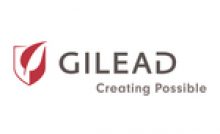Takeda Announces U.S. FDA Approval of Supplemental New Drug Application (sNDA) for ICLUSIG® (ponatinib) in Adult Patients with Newly Diagnosed Ph+ ALL


− ICLUSIG Becomes the First and Only Targeted Treatment Approved in the U.S. for Frontline Ph+ Acute Lymphoblastic Leukemia (ALL) in Combination with Chemotherapy
− First FDA Approval in Ph+ ALL Based on Novel Primary Endpoint of Minimal Residual Disease (MRD)-negative Complete Remission (CR)
− Accelerated Approval Based on Data from the Phase 3 PhALLCON Trial, in which ICLUSIG Demonstrated Superiority in MRD-negative Complete Remission Rates and Comparable Safety to Imatinib
OSAKA, Japan & CAMBRIDGE, Mass.–(BUSINESS WIRE)–Takeda (TSE:4502/NYSE:TAK) today announced that the U.S. Food and Drug Administration (FDA) has approved the supplemental New Drug Application (sNDA) for ICLUSIG® (ponatinib) for the treatment of adult patients with newly diagnosed Philadelphia chromosome-positive acute lymphoblastic leukemia (Ph+ ALL) in combination with chemotherapy. This indication is approved under accelerated approval based on minimal residual disease (MRD)-negative complete remission (CR) at the end of induction. Continued approval for this indication may be contingent upon verification and description of clinical benefit in confirmatory trials. This accelerated approval application was granted Priority Review and evaluated under the Real-Time Oncology Review (RTOR) program, an FDA initiative designed to expedite the delivery of cancer medicines by allowing components of an application to be reviewed before submission of the complete application.
“This label expansion for ICLUSIG is an incredibly exciting milestone, allowing U.S. adult patients with newly diagnosed Ph+ ALL to have an approved, targeted treatment option in the frontline,” said Awny Farajallah, MD, chief medical officer, oncology at Takeda. “We are thrilled that the FDA has recognized the potential of ICLUSIG to fill a large gap in care for these patients and look forward to seeing the impact this can have on people with this rare and aggressive form of cancer.”
The approval was supported by data from the PhALLCON study – the first, global, Phase 3, registrational, head-to-head clinical trial in adults with newly diagnosed Ph+ ALL. The study, in which patients received either ICLUSIG or imatinib, plus reduced-intensity chemotherapy, met its primary endpoint of MRD-negative CR at the end of induction. MRD-negative CR is a composite endpoint defined in alignment with the FDA that reflects deep molecular and clinical responses and is an important prognostic indicator for long-term outcomes for patients with Ph+ ALL. ICLUSIG demonstrated superiority compared to imatinib, with patients who received ICLUSIG achieving a greater than two-fold improvement in the rate of MRD-negative CR at the end of induction (cycle 3). In the trial, the safety profile of ICLUSIG was comparable to imatinib, and no new safety signals were identified.
“Ph+ ALL is an extremely aggressive cancer and patients with this disease suffer from poor outcomes. There has long been a need for a potent TKI that can suppress mutation development and elicit deep responses in the frontline,” said Elias Jabbour, MD, The University of Texas MD Anderson Cancer Center and lead investigator of the PhALLCON trial. “Ponatinib may help address these factors and impact long-term outcomes.”
ICLUSIG is a kinase inhibitor indicated in the U.S. for adult patients with newly diagnosed Ph+ ALL in combination with chemotherapy. This indication is approved under accelerated approval based on MRD-negative CR at the end of induction. Continued approval for this indication may be contingent upon verification of clinical benefit in a confirmatory trial(s). In addition, it is approved as monotherapy in Ph+ ALL for whom no other kinase inhibitors are indicated or T315I-positive Ph+ ALL, chronic-phase (CP) CML with resistance or intolerance to at least two prior kinase inhibitors, accelerated phase (AP) or blast phase (BP) CML for whom no other kinase inhibitors are indicated or T315I-positive CML (chronic phase, accelerated phase, or blast phase). ICLUSIG is not indicated and is not recommended for the treatment of patients with newly diagnosed CP-CML.
About the PhALLCON Trial
The PhALLCON study is a Phase 3, randomized, international, open-label multicenter trial evaluating the efficacy and safety of ICLUSIG versus imatinib, in combination with reduced-intensity chemotherapy as a frontline therapy for adult patients with newly diagnosed Ph+ ALL.
A total of 245 patients were randomized 2:1 and treated with ICLUSIG or imatinib plus reduced-intensity chemotherapy. The median age of patients was 54 and 52 in the ICLUSIG and imatinib arms, respectively. 164 patients were treated with ICLUSIG receiving a starting dose of 30mg/day and 81 patients were treated with imatinib at a starting dose of 600mg/day. All patients received either ICLUSIG or imatinib with reduced-intensity chemotherapy through induction, consolidation and maintenance phase. After combination therapy, patients continued to receive single-agent ICLUSIG or imatinib until relapse from CR, progressive disease (PD), hematopoietic stem cell transplantation (HSCT), start of alternative therapy or unacceptable toxicity. The primary endpoint of the study was MRD-negative CR rate at the end of induction (3 cycles of treatment). Event-free survival, the key secondary endpoint of the trial, is not yet mature.
About Philadelphia chromosome-positive acute lymphoblastic leukemia (Ph+ ALL)
Ph+ ALL is a rare form of ALL that affects approximately 25% of adult ALL patients in the U.S. and is characterized by the presence of an abnormal gene, known as the Philadelphia chromosome. In patients who are Philadelphia chromosome-positive (Ph+), an abnormal chromosome is formed when pieces of chromosomes 9 and 22 switch with each other. This forms a longer chromosome 9 and a shorter chromosome 22, which leads to the development of BCR::ABL1 and is associated with Ph+ ALL.
About ICLUSIG® (ponatinib) tablets
ICLUSIG is a kinase inhibitor targeting BCR::ABL1, an abnormal tyrosine kinase that is expressed in CML and Ph+ ALL. ICLUSIG is a targeted cancer medicine developed using a computational and structure-based drug-design platform, specifically designed to inhibit the activity of BCR::ABL1 and its mutations. ICLUSIG inhibits native BCR::ABL1, as well as all BCR::ABL1 treatment-resistant mutations, including the most resistant T315I mutation. This mutation has been associated with resistance to all other approved TKIs. ICLUSIG received full approval from the FDA in November 2016. ICLUSIG is a kinase inhibitor indicated in the U.S. for adult patients with newly diagnosed Ph+ ALL in combination with chemotherapy. This indication is approved under accelerated approval based on MRD-negative CR at the end of induction. Continued approval for this indication may be contingent upon verification of clinical benefit in a confirmatory trial(s). In addition, it is approved as monotherapy in Ph+ ALL for whom no other kinase inhibitors are indicated or T315I-positive Ph+ ALL, chronic-phase (CP) CML with resistance or intolerance to at least two prior kinase inhibitors, accelerated phase (AP) or blast phase (BP) CML for whom no other kinase inhibitors are indicated, or T315I-positive CML (chronic phase, accelerated phase, or blast phase). ICLUSIG is not indicated and is not recommended for the treatment of patients with newly diagnosed CP-CML.
IMPORTANT SAFETY INFORMATION
| WARNING: ARTERIAL OCCLUSIVE EVENTS, VENOUS THROMBOEMBOLIC EVENTS, HEART FAILURE, and HEPATOTOXICITY See full prescribing information for complete boxed warning.
|
|
|
WARNINGS AND PRECAUTIONS
Arterial Occlusive Events (AOEs): AOEs, including fatalities, have occurred in patients who received ICLUSIG in PhALLCON, OPTIC and PACE. These included cardiovascular, cerebrovascular, and peripheral vascular events. In PhALLCON, 6% of 163 patients experienced AOEs; 3.7% experienced Grade 3 or 4. The incidence of AOEs in OPTIC (45 mg-> 15 mg) was 14% of 94 patients; 6% experienced Grade 3 or 4. In PACE, the incidence of AOEs was 26% of 449 patients; 14% experienced Grade 3 or 4. Fatal AOEs occurred in 0.6% of patients in PhALLCON, 2.1% of patients in OPTIC, and in 2% of patients in PACE. Some patients in PACE experienced recurrent or multisite vascular occlusion. Patients with and without cardiovascular risk factors, including patients age 50 years or younger, experienced these events. The most common risk factors observed with these events in PACE were history of hypertension, hypercholesterolemia, and non-ischemic cardiac disease. In PhALLCON, OPTIC and PACE, AOEs were more frequent with increasing age.
In PhALLCON, patients with uncontrolled hypertension, hypertriglyceridemia, or diabetes were excluded. Patients with clinically significant, uncontrolled, or active cardiovascular disease, including any history of myocardial infarction, peripheral vascular infarction, revascularization procedure, venous thromboembolism, clinically significant atrial/ventricular tachyarrhythmias, unstable angina, or congestive heart failure within the 6 months prior to the first dose of ICLUSIG, were also excluded.
In OPTIC, patients with uncontrolled hypertension or diabetes and patients with clinically significant, uncontrolled, or active cardiovascular disease were excluded.
In PACE, patients with uncontrolled hypertriglyceridemia and patients with clinically significant or active cardiovascular disease within the 3 months prior to the first dose of ICLUSIG were excluded.
Consider whether the benefits of ICLUSIG are expected to exceed the risks. Monitor for evidence of AOEs. Interrupt, then resume at the same or decreased dose or discontinue ICLUSIG based on recurrence/severity. Consider benefit-risk to guide a decision to restart ICLUSIG.
Venous Thromboembolic Events (VTEs): Serious or severe VTEs have occurred in patients who received ICLUSIG. In PhALLCON, VTEs occurred in 12% of 163 patients, including serious or severe (Grade 3 or 4) in 3.1% of patients. One of 94 patients in OPTIC experienced a VTE (Grade 1 retinal vein occlusion). In PACE, VTEs occurred in 6% of 449 patients including serious or severe (Grade 3 or 4) VTEs in 5.8% of patients. In PhALLCON and PACE VTEs included deep venous thrombosis, embolism, pulmonary embolism, superficial vein thrombosis, thrombosis, jugular vein thrombosis, superficial thrombophlebitis, retinal vein occlusion, and retinal vein thrombosis with vision loss. The incidence of VTEs in PACE was higher in patients with Ph+ ALL (9% of 32 patients) and BP-CML (10% of 62 patients). Monitor for evidence of VTEs. Interrupt, then resume at the same or decreased dose or discontinue ICLUSIG based on recurrence/severity.
Heart Failure: Fatal, serious or severe heart failure events have occurred in patients who received ICLUSIG. In PhALLCON, heart failure occurred in 6% of 163 patients; 1.2% experienced serious or severe (Grade 3 or 4) heart failure. Heart failure occurred in 13% of 94 patients in OPTIC; 1.1% experienced serious or severe (Grade 3 or 4). In PACE, heart failure occurred in 9% of 449 patients; 7% experienced serious or severe (Grade 3 or higher). In PhALLCON the most frequently reported heart failure event (>1 patient) was increased brain natriuretic peptide (BNP) (2.5%). In OPTIC, the most frequently reported heart failure events (>1 patient each) were left ventricular hypertrophy (3.2%) and BNP increased (3.2%). In PACE, the most frequently reported heart failure events (≥2%) were congestive cardiac failure (3.1%), decreased ejection fraction (2.9%), and cardiac failure (2%). Monitor patients for signs or symptoms consistent with heart failure and manage heart failure as clinically indicated. Interrupt, then resume at reduced dose or discontinue ICLUSIG for new or worsening heart failure.
Hepatotoxicity: ICLUSIG can cause hepatotoxicity, including liver failure and death. Fulminant hepatic failure leading to death occurred in 3 patients, with hepatic failure occurring within 1 week of starting ICLUSIG in one of these patients. These fatal cases occurred in patients with BP-CML or Ph+ ALL treated with monotherapy. Hepatotoxicity occurred in 66% of 163 patients in PhALLCON, in 28% of 94 patients in OPTIC and in 32% of 449 patients in PACE. Grade 3 or 4 hepatotoxicity occurred in PhALLCON (30% of 163 patients), in OPTIC (6% of 94 patients), and in PACE (13% of 449 patients). The most frequent hepatotoxic events were elevations of ALT, AST, GGT, bilirubin, and alkaline phosphatase. Monitor liver function tests at baseline, then at least monthly or as clinically indicated. Interrupt, then resume at a reduced dose or discontinue ICLUSIG based on recurrence/severity.
Hypertension: Serious or severe hypertension, including hypertensive crisis, has occurred in patients who received ICLUSIG. Patients may require urgent clinical intervention for hypertension associated with confusion, headache, chest pain, or shortness of breath. Monitor blood pressure at baseline and as clinically indicated and manage hypertension as clinically indicated. Interrupt, dose reduce, or stop ICLUSIG if hypertension is not medically controlled. For significant worsening, labile or treatment-resistant hypertension, interrupt ICLUSIG and consider evaluating for renal artery stenosis.
Pancreatitis: Serious or severe pancreatitis has occurred in patients who received ICLUSIG. Elevations of lipase and amylase also occurred. In the majority of cases that led to dose modification or treatment discontinuation, pancreatitis resolved within 2-3 weeks. Monitor serum lipase every 2 weeks for the first 2 months and then monthly thereafter or as clinically indicated. Consider additional serum lipase monitoring in patients with a history of pancreatitis or alcohol abuse. Interrupt, then resume at the same or reduced dose or discontinue ICLUSIG based on severity. Evaluate for pancreatitis when lipase elevation is accompanied by abdominal symptoms.
Increased Toxicity in Newly Diagnosed Chronic Phase CML: In a prospective randomized clinical trial in the first-line treatment of newly diagnosed patients with CP-CML, single agent ICLUSIG 45 mg once daily increased the risk of serious adverse reactions 2-fold compared to single agent imatinib 400 mg once daily. The median exposure to treatment was less than 6 months. The trial was halted for safety. Arterial and venous thrombosis and occlusions occurred at least twice as frequently in the ICLUSIG arm compared to the imatinib arm. Compared to imatinib-treated patients, ICLUSIG-treated patients exhibited a greater incidence of myelosuppression, pancreatitis, hepatotoxicity, cardiac failure, hypertension, and skin and subcutaneous tissue disorders. ICLUSIG is not indicated and is not recommended for the treatment of patients with newly diagnosed CP-CML.
Neuropathy: Peripheral and cranial neuropathy occurred in patients in PhALLCON, OPTIC and PACE. Some of these events in PhALLCON and PACE were Grade 3 or 4. Monitor patients for symptoms of neuropathy, such as hypoesthesia, hyperesthesia, paresthesia, discomfort, a burning sensation, neuropathic pain or weakness. Interrupt, then resume at the same or reduced dose or discontinue ICLUSIG based on recurrence/severity.
Ocular Toxicity: Serious or severe ocular toxicity leading to blindness or blurred vision have occurred in ICLUSIG-treated patients. The most frequent ocular toxicities occurring in PhALLCON, OPTIC and PACE were dry eye, blurred vision, and eye pain. Retinal toxicities included age-related macular degeneration, macular edema, retinal vein occlusion, retinal hemorrhage, and vitreous floaters. Conduct comprehensive eye exams at baseline and periodically during treatment.
Hemorrhage: Fatal and serious hemorrhage events have occurred in patients who received ICLUSIG. Fatal hemorrhages occurred in PACE and serious hemorrhages occurred in PhALLCON, OPTIC and PACE. In PACE, the incidence of serious bleeding events was higher in patients with AP-CML, BP-CML, and Ph+ ALL. Intracranial hemorrhage, gastrointestinal hemorrhage and subdural hematoma were the most frequently reported serious hemorrhages. Events often occurred in patients with Grade 4 thrombocytopenia. Monitor for hemorrhage and manage patients as clinically indicated. Interrupt, then resume at the same or reduced dose or discontinue ICLUSIG based on recurrence/severity.
Fluid Retention: Fatal and serious fluid retention events have occurred in patients who received ICLUSIG. In PACE, one instance of brain edema was fatal and serious events included pleural effusion, pericardial effusion, and angioedema. In PhALLCON serious fluid retention included pericardial effusion. The most frequent occurrences of fluid retention in patients who received ICLUSIG were peripheral edema and pleural effusion. Monitor for fluid retention and manage patients as clinically indicated. Interrupt, then resume at the same or reduced dose or discontinue ICLUSIG based on recurrence/severity.
Cardiac Arrhythmias: Cardiac arrhythmias, including ventricular, atrial arrhythmias, tachycardia, syncope, atrial fibrillation and supraventricular tachycardia occurred in patients in PhALLCON, OPTIC, and PACE. For some patients, events were serious or severe (Grade 3 or 4) and led to hospitalization. Monitor for signs and symptoms suggestive of slow heart rate (fainting, dizziness) or rapid heart rate (chest pain, palpitations or dizziness) and manage patients as clinically indicated. Interrupt, then resume at the same or reduced dose or discontinue ICLUSIG based on recurrence/severity.
Myelosuppression: Grade 3 or 4 events of neutropenia, thrombocytopenia, and anemia occurred in patients in PhALLCON, OPTIC and PACE. In PACE, the incidence of myelosuppression was greater in patients with AP-CML, BP-CML, and Ph+ ALL treated with monotherapy than in patients with CP-CML. Obtain complete blood counts every 2 weeks for the first 3 months and then monthly or as clinically indicated. If ANC less than 1 x 109/L or platelets less than 50 x 109/L, interrupt ICLUSIG until ANC at least 1.5 x 109/L and platelets at least 75 x 109/L, then resume at same or reduced dose.
Tumor Lysis Syndrome (TLS): Serious TLS was reported in ICLUSIG-treated patients in PhALLCON, OPTIC and PACE. Ensure adequate hydration and treat high uric acid levels prior to initiating ICLUSIG.
Reversible Posterior Leukoencephalopathy Syndrome (RPLS): RPLS (also known as Posterior Reversible Encephalopathy Syndrome) has been reported in patients who received ICLUSIG. Patients may present with neurological signs and symptoms, visual disturbances, and hypertension. Diagnosis is made with supportive findings on magnetic resonance imaging (MRI) of the brain. Interrupt ICLUSIG until resolution. The safety of resumption of ICLUSIG in patients upon resolution of RPLS is unknown.
Impaired Wound Healing and Gastrointestinal Perforation: Impaired wound healing occurred in patients receiving ICLUSIG. Withhold ICLUSIG for at least 1 week prior to elective surgery. Do not administer for at least 2 weeks following major surgery and until adequate wound healing. The safety of resumption of ICLUSIG after resolution of wound healing complications has not been established. Gastrointestinal perforation or fistula occurred in patients receiving ICLUSIG. Permanently discontinue in patients with gastrointestinal perforation.
Embryo-Fetal Toxicity: Based on its mechanism of action and findings from animal studies, ICLUSIG can cause fetal harm when administered to a pregnant woman. Advise pregnant women of the potential risk to the fetus. Advise females of reproductive potential to use effective contraception during treatment with ICLUSIG and for 3 weeks after the last dose.
ADVERSE REACTIONS
The most common adverse reactions (occurring in >20% of patients) are:
- ICLUSIG as a single agent: rash and related conditions, arthralgia, abdominal pain, headache, constipation, dry skin, hypertension, fatigue, fluid retention and edema, pyrexia, nausea, pancreatitis/lipase elevation, hemorrhage, anemia, hepatic dysfunction and AOEs. The most common Grade 3 or 4 laboratory abnormalities (>20%) are platelet count decreased, neutrophil cell count decreased, and white blood cell decreased.
- ICLUSIG in combination with chemotherapy: hepatic dysfunction, arthralgia, rash and related conditions, headache, pyrexia, abdominal pain, constipation, fatigue, nausea, oral mucositis, hypertension, pancreatitis/lipase elevation, neuropathy peripheral, hemorrhage, febrile neutropenia, fluid retention and edema, vomiting, paresthesia and cardiac arrhythmias. The most common Grade 3 or 4 laboratory abnormalities (>20%) are decreased white blood cell count, decreased neutrophil cell count, decreased platelet count, decreased lymphocyte cell count, decreased hemoglobin, increased lipase and increased alanine aminotransferase.
To report SUSPECTED ADVERSE REACTIONS, contact Takeda Pharmaceuticals at 1-844-817-6468 or FDA at 1-800-FDA-1088 or www.fda.gov/medwatch.
DRUG INTERACTIONS
Strong CYP3A Inhibitors: Avoid coadministration or reduce ICLUSIG dose if coadministration cannot be avoided.
Strong CYP3A Inducers: Avoid coadministration.
USE IN SPECIFIC POPULATIONS
Lactation: Advise women not to breastfeed during treatment with ICLUSIG and for 1 week following last dose.
Females and Males of Reproductive Potential: Verify pregnancy status of females of reproductive potential prior to initiating ICLUSIG.
Ponatinib may impair fertility in females, and it is not known if these effects are reversible.
Pre-existing Hepatic Impairment: For patients with CP-CML, AP-CML, BP-CML, and Ph+ ALL receiving monotherapy, reduce the starting dose of ICLUSIG to 30mg orally once daily for patients with pre-existing hepatic impairment as these patients are more likely to experience adverse reactions compared to patients with normal hepatic function. For patients with newly diagnosed Ph+ ALL, no dosage adjustment is recommended.
Takeda’s Commitment to Oncology
Our core R&D mission is to deliver novel medicines to patients with cancer worldwide through our commitment to science, breakthrough innovation and passion for improving the lives of patients.
Contacts
Media:
Japanese Media
Jun Saito
jun.saito@takeda.com
+81 (0) 3-3278-2325
U.S. and International Media
Emy Gruppo
emy.gruppo@takeda.com
+1 667-444-2252
Recent Posts
Galaxy Macau Celebrates 30 Years of China–Monaco Ties with the Spectacular ‘Galaxy Music Gala: A Musical Journey from Monaco to Macau’
MACAU SAR - Media OutReach Newswire - 30 April 2025 - In celebration of the…
Backbase launches world’s first AI-powered Banking Platform, putting banks back in Growth Mode
Industry pioneer redefines what a banking platform is in the era of AI, and delivers…
Vietnamese Student Exemplifies Growing Success of International Community at CUHK
HONG KONG SAR - Media OutReach Newswire - 30 April 2025 - The Chinese University…
Oryon.net Launches Oryon Academy: Empowering Microsoft 365 Business Users
Why Owning Microsoft 365 Isn't Enough Anymore — Oryon Academy Teaches Businesses to Master It…
Gold’s Path to $4,000: Macro Drivers, Market Sentiment, and Strategic Insight by global broker Octa
KUALA LUMPUR, MALAYSIA - Media OutReach Newswire - 30 April 2025 - Gold has kept…
Singapore SMEs Hit by Record 8.47% Borrowing Costs and Shrinking Loan Access in 2024: Linkflow Capital Survey
New data shows sharp contraction in loan sizes, rising business cessations, and shifting lender dynamics…



